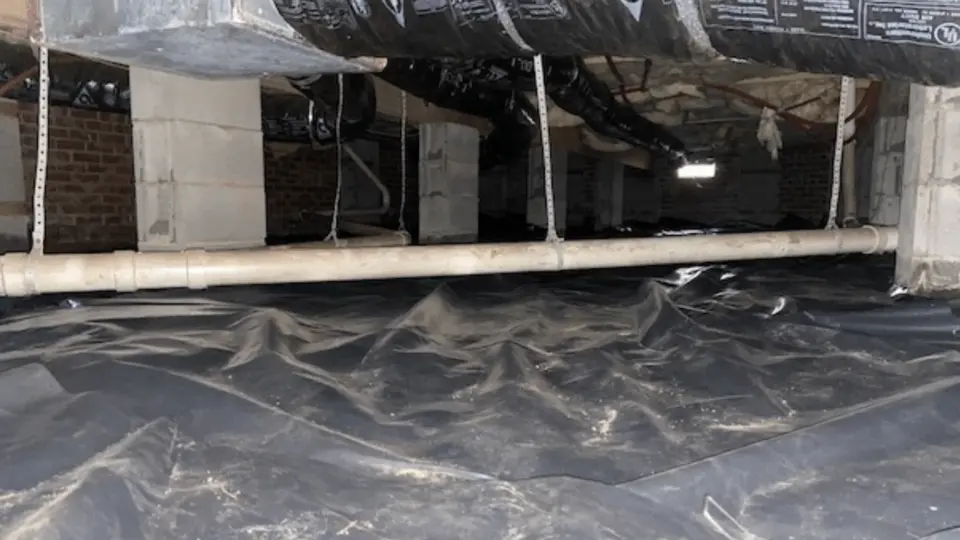
Home construction has come a long way since the days of rudimentary shelters made from stone, wood, and other natural materials. Today, homes are designed with a focus on not only aesthetic appeal and functionality but also long-term durability, energy efficiency, and environmental sustainability.
One of the unsung heroes behind this modern construction revolution is the moisture barrier—an innovation that has dramatically improved the way we build and maintain homes. These materials, which act as a protective shield against water infiltration, have become essential in the modern construction process, contributing to everything from structural integrity to energy savings.
How Have Moisture Barriers Improved Durability In Home Construction?
The role of moisture barriers in home construction can’t be overstated when it comes to improving the overall durability of a structure. From protecting the foundation to safeguarding the roof, these barriers help maintain the integrity of a home for decades. Here’s how:
- Preventing Water Damage: One of the most significant threats to the durability of a home is water. Whether it’s rain, snowmelt, or humidity, moisture can seep into building materials and cause long-term damage. Moisture barriers, such as vapor retarders and waterproof membranes, are designed to block water from entering a building, especially in areas where water is most likely to accumulate—such as basements, crawl spaces, and exterior walls. By preventing moisture infiltration, these barriers help reduce the risk of rot, mold growth, and rust, all of which can significantly compromise the structure of a home.
- Protecting Building Materials: Without a moisture barrier, the materials used to construct a home (like wood, insulation, and drywall) are vulnerable to water damage. Wood can warp or rot, insulation can become ineffective, and drywall can weaken or even crumble. Moisture barriers act as a first line of defense against these risks, ensuring that the materials stay dry and structurally sound. In particular, the use of moisture barriers in the foundation and exterior walls helps to preserve the integrity of the materials used to build the home.
- Reducing Long-Term Maintenance Costs: Over time, homes exposed to moisture-related damage often require expensive repairs, from replacing rotting wood to fixing mold-related health hazards. Moisture barriers can prevent these issues before they start, helping homeowners avoid costly repairs and extend the lifespan of their homes. This reduction in maintenance and repair costs is a significant benefit of using moisture barriers in construction.
- Increasing Property Value: Homes that are designed with moisture barriers tend to last longer, which can increase their resale value. Potential buyers are more likely to be attracted to homes that show signs of long-term durability, as they reduce the likelihood of encountering unexpected maintenance costs. The ability to assure buyers that moisture-related damage won’t be an issue gives homeowners a competitive edge in the real estate market.
By enhancing durability, moisture barriers not only protect the home’s structure but also contribute to its long-term value and livability.
What Role Do Moisture Barriers Play in Preventing Structural Damage?
Structural damage is one of the most expensive problems a homeowner can face, and moisture is one of the leading causes of such damage. A moisture barrier’s primary role is to prevent moisture from penetrating a building, thus reducing the risk of structural damage. Here’s how they achieve this:
- Fighting Moisture-Related Issues Like Mold and Mildew: Moisture infiltration can lead to the growth of mold and mildew, which can spread quickly through wooden framing, drywall, and insulation. These fungi not only weaken the materials but can also present serious health risks. Moisture barriers help prevent mold and mildew by blocking excess moisture from entering the building. This is especially critical in areas like basements, crawl spaces, and attics, where high humidity can be a common problem.
- Protecting Foundations and Crawl Spaces: Moisture barriers are particularly effective at preventing water from seeping into a home’s foundation or crawl spaces. Foundations are at risk of being damaged by excess moisture in the ground, leading to cracks, shifting, and settling. When moisture barriers are installed properly, they help keep water out, preventing costly foundation repairs and protecting the overall stability of the home. Similarly, in crawl spaces, moisture can cause wood rot and corrosion of metal supports. A moisture barrier helps mitigate these risks by keeping the space dry and maintaining structural integrity.
- Preventing Corrosion and Rust: Many parts of a home’s structure, such as metal supports and fasteners, are susceptible to rust when exposed to moisture over time. Rust can significantly weaken the structural elements of a home, potentially compromising its safety. Moisture barriers prevent water from coming into contact with these components, reducing the likelihood of corrosion and preserving the structural integrity of the building.
- Improving Roof and Wall Durability: Roofs and walls are other areas that benefit from moisture barriers. Water infiltration can cause shingles to warp or deteriorate, while moisture trapped in the walls can damage insulation and weaken the materials. Moisture barriers act as a protective shield for both roofs and walls, ensuring that these vital areas remain strong and long-lasting.
In preventing structural damage, moisture barriers act as silent protectors, allowing homes to withstand the elements and remain safe for years to come.
How Do Moisture Barriers Contribute to Energy Efficiency in Homes?
Moisture barriers do more than just protect the structure of a home—they also contribute significantly to its energy efficiency. Proper moisture control within a home helps to regulate temperature, prevent drafts, and reduce the workload on heating and cooling systems. Here’s how moisture barriers help with energy efficiency:
- Controlling Humidity Levels: Excess moisture in the home can lead to higher humidity levels, making the interior feel warmer in the summer and colder in the winter. High humidity increases the need for air conditioning in the summer and can make heating less effective in the winter. By reducing moisture buildup, moisture barriers help control humidity levels, creating a more comfortable indoor environment year-round. This, in turn, reduces the need for air conditioning and heating, cutting down on energy consumption.
- Improving Insulation Performance: Insulation works by trapping air to create a barrier that helps maintain the desired temperature within the home. However, when moisture infiltrates the insulation, it loses its effectiveness. Wet insulation can also lead to mold growth, which further compromises its performance. Moisture barriers prevent moisture from getting into the insulation, ensuring it remains dry and effective at regulating temperature. This helps to maintain a stable indoor climate and reduces the need for excessive heating or cooling.
- Reducing the Load on HVAC Systems: A home that is properly sealed and protected from moisture requires less energy to heat and cool. By preventing moisture infiltration and maintaining consistent insulation, moisture barriers reduce the workload on HVAC systems. This means that heating and cooling systems don’t have to work as hard to maintain a comfortable temperature, leading to lower energy bills and a smaller carbon footprint.
- Preventing Drafts: Moisture can often create drafts in the home, especially when water seeps into the walls or floors. Drafts waste energy by allowing warm air to escape during winter and cool air to leak out during summer. Moisture barriers help seal off these areas, preventing drafts and making it easier to maintain a consistent temperature throughout the home.
By contributing to energy efficiency, moisture barriers not only help reduce utility bills but also promote a more sustainable and eco-friendly living environment.
What are the Environmental Benefits of Using Moisture Barriers in Construction?
In addition to the practical benefits of moisture barriers, they also offer significant environmental advantages. As awareness of environmental sustainability grows, moisture barriers have become a crucial component in reducing the ecological footprint of home construction. Here are the environmental benefits:
- Reducing Energy Consumption: By improving the energy efficiency of homes, moisture barriers help reduce the amount of energy required for heating and cooling. Less energy consumption translates to fewer greenhouse gas emissions and a lower carbon footprint. By making homes more energy-efficient, moisture barriers contribute to the global effort to combat climate change.
- Reducing Waste and Repair Costs: Moisture-related damage can lead to costly repairs, such as replacing rotting wood, replacing insulation, or fixing mold issues. The use of moisture barriers prevents these problems from arising in the first place, reducing the amount of construction waste generated by repairs. Fewer repairs mean fewer resources used and less waste sent to landfills, promoting a more sustainable construction process.
- Using Eco-Friendly Materials: Many modern moisture barriers are made from environmentally friendly materials, such as recycled products, biodegradable substances, or materials that are free from harmful chemicals. These eco-friendly moisture barriers contribute to the overall sustainability of a building, making them a responsible choice for homeowners who are looking to reduce their environmental impact.
- Promoting Longer-Lasting Homes: Homes that are protected by moisture barriers tend to last longer because they are better able to resist water damage. Longer-lasting homes require fewer repairs and less frequent replacement, which means that fewer resources are consumed over time.
By promoting energy efficiency, reducing waste, and utilizing sustainable materials, moisture barriers support a more environmentally conscious approach to home construction.
Moisture barriers have revolutionized the way we build and maintain homes, improving durability, preventing structural damage, enhancing energy efficiency, and providing significant environmental benefits. These innovative materials are no longer just an afterthought in construction—they are an essential part of modern home building standards.
By preventing moisture from infiltrating the home, moisture barriers help protect building materials, extend the lifespan of homes, and reduce long-term maintenance costs. They also play a key role in reducing energy consumption and environmental impact, making homes more sustainable and eco-friendly.
For homeowners looking to protect their investment, improve their home’s energy efficiency, and contribute to a more sustainable future, moisture barriers are a wise and necessary choice. As building technologies continue to evolve, the importance of moisture barriers will only grow, making them an indispensable component of modern home construction.
Protect Your Home from the Ground Up with Freedom Crawlspace Services!
At Freedom Crawlspace Services, we specialize in safeguarding your home’s foundation by providing expert crawlspace solutions. Whether you’re dealing with moisture issues, poor ventilation, or need full encapsulation, we’re here to ensure your home stays dry, healthy, and structurally sound.
Here’s how our services can benefit you:
- Moisture Control: We prevent water buildup in your crawlspace, which can lead to mold, mildew, and costly repairs.
- Improved Air Quality: Our encapsulation systems help reduce allergens and humidity, making the air in your home healthier and more breathable.
- Preventing Structural Damage: Moisture and pests in your crawlspace can threaten your home’s foundation. We offer solutions that protect your investment for the long haul.
- Increased Energy Efficiency: With the right crawlspace improvements, your home’s heating and cooling systems will work more efficiently, saving you money on utility bills.
Contact us today to schedule a consultation and let us help you protect your home from the ground up!
